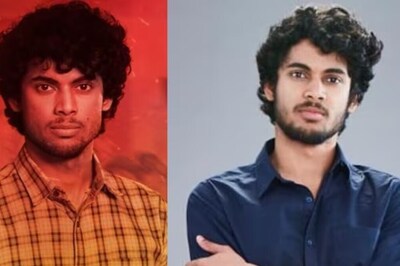
views
CHENNAI: 'Ponniyin Selvan', 'Sivakamiyin Sabadham' and 'Parthiban Kanavu'. The words have always spelt magic for those who first read the historical novels as serials, in Kalki, beginning 1942.Back when Kalki R Krishnamurthy, legendary writer, first started his own Tamil magazine, his closest friends suggested that it would land him in colossal loss. True to his mien, Kalki refused to entertain any idea of failure and went ahead. Just how successful he would be, no one could quite predict – but his friends were relieved, and detractors aghast at the humongous success of both his magazine and the historicals that were the primary reason for it.When he wrote on the travels of Chola Prince Vikraman, or the war and bloodshed that accompanied the Pallava Empire’s most famed danseuse Sivakami, or the murder of Chola Prince Aditha Karikalan — he wasn’t just re-writing bland facts from centuries ago.He breathed passion and energy into the words, brought 10th century Thanjavur and 7th century Kanchipuram to public notice. He brought history back to life. Romantic, and alluring.“Even now, visitors to Mamallapuram” – the proper name for the port-town, Mahabalipuram; yet another historical fact set right largely by Kalki – “ask if this was where Prince Narasimha Pallavar rode with his beloved Sivakami on horse-back,” said Dr Kalaikkovan, historian and researcher, one evening, on a moonlight trip to the shore-temples. “Such is the pull of Sivakamiyin Sabadham that no one realises that she was fictional,” he laughed ruefully.After 112 years since he was born, on September 9, I look back at how his works have shaped entire generations of history-lovers, and I find that interest in his works, and by the same token, Tamil history, have only grown by leaps and bounds. Not just in unknown corners of Tamil Nadu, but among Tamil speakers throughout the world.“I was in Class 8, struggling with my Tamil lessons at school, when I first read them,” explains Vijay Kumar, who works in shipping and oversees South East Asian Operations, in Singapore. His grandmother was the first to introduce him to Kalki’s works. “I think I finished all three historicals in one go, over a two week holiday. I must say, I imagined myself as many of the characters for months, even enacting a few mock plays with my friends. The language was so simple and I literally travelled with the story.”Such was the pull of the novel that his once awry Tamil-reading improved vastly, and he now runs a blog, www.poetryinstone.in, dedicated to the writer, where he posts detailed accounts of various temples, their architecture, sculpture, and even lectures about them.Vijay is not the only one – Kalki has sites and forums everywhere, from Yahoo to Facebook, where eager fans gather in discussion. One such group, at www.ponniyinselvan.in, has undertaken trips to places mentioned in the book and boasts more than 2500 members – all fans, nay fanatics of Kalki and his works. And inspires them to attain greater heights as well.For 46-year old Venkatesh Ramakrishnan, a Vasthu Sastra expert, the book was an inspiration in another way. So revved up was he when he finished the book that he decided to write a sequel: Kaviriyin Maindhan. “I thought, No way, you can’t end a novel like this - you can’t leave us in the lurch!” he grins. And it was Kalki who drove him to attempt more in the genre. “Kalki had a very simple approach to events, people and relationships. His language was not complicated. That endeared millions to him.”That was more or less the same response I received from artist Padmavaasan, on a sultry afternoon at his home. As I gazed, awed, at the painstaking micro-tip pen illustrations of Paranjyothi’s first taste of war, Sivakami’s palanquin, Arulmozhi Varmar’s glimpse of Vanathi, Naganandhi’s face morphing into a vicious cobra, and a young man, silhouetted against the moonlit night, galloping on his horse, the illustrator explained just what drew him to Kalki. “He had a way of bringing everything he wrote to life. His perfect visualization helped me draw exactly what he was describing. Very few writers can do that. Especially for a historical.”These days, Kalki’s appeal has reached non-Thamizh readers as well – through translations. “Historical fiction is my favourite genre of literary reading,” explains Gitanjali JB, founder of the publishing house, Helios Books. Discussing historical fiction with a friend, one day, she was introduced to Kalki and his works. “I liked the detailing of situations and psychology of characters. There is every aspect of human psyche described from valour to pathos,” she enthuses. “Like Shakespeare, his portrayal of human problems and themes is universal. He enlivens that day and age and one feels a part of the milieu and story.” That’s also why she’s set to bring out translations of his works in English, soon. A hero, they say, is someone whose popularity and exploits are so far-reaching, that he becomes a landmark, a legend. R Krishnamurthy may have enshrined his historical characters and given them the due they deserved – and in the process, he became a legend himself.Happy belated birthday, Kalki.




















Comments
0 comment